There are some moments that divide history into before and after. In Israel, some of those moments are May 14th, 1948, the Six-Day War, and the peace treaty with Egypt. And then there are the moments that could change everything. In 2020, Israel normalized relations with four countries. Headlines around the world declared a new dawn in the Middle East.
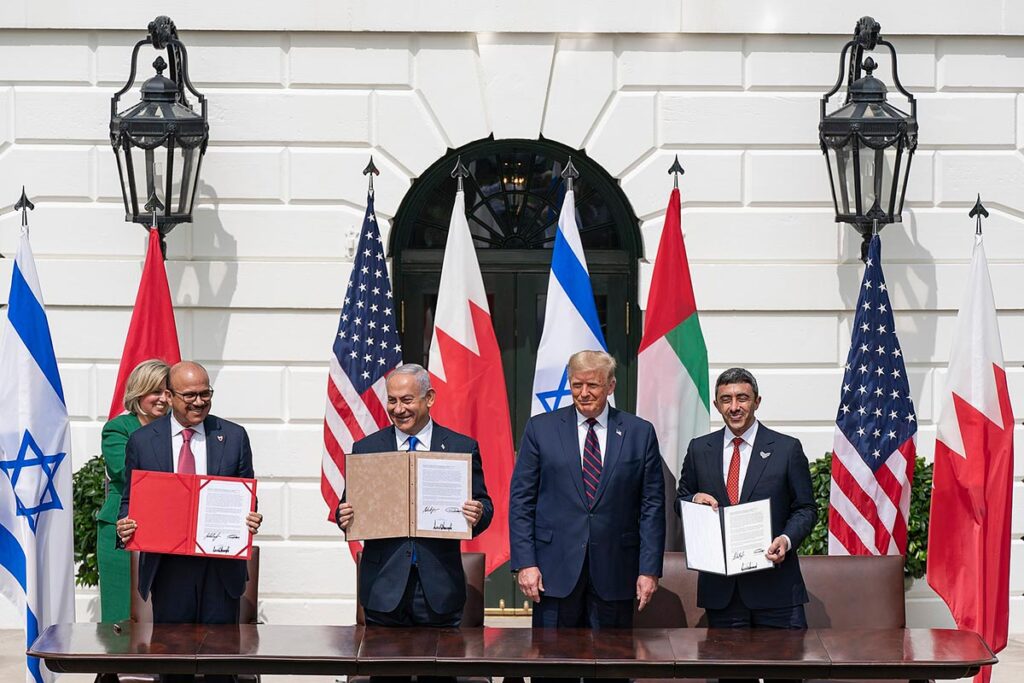
By all metrics, this is amazing. A new era/dawn for Israel and the Middle East. But the question I have is this: what could we learn from Israel’s new friendships in the neighborhood in improving its most contentious relationship, in its own backyard, with the Palestinians? And what would the future look like if Israelis and Palestinians alike seized this opportunity to change the status quo?
Israel may be a young country, but it’s got a long and painful history with its neighbors. Look at this map. Israel is in blue, and all of the countries that refused to publicly recognize its existence for the first 29 years after its independence are in red:
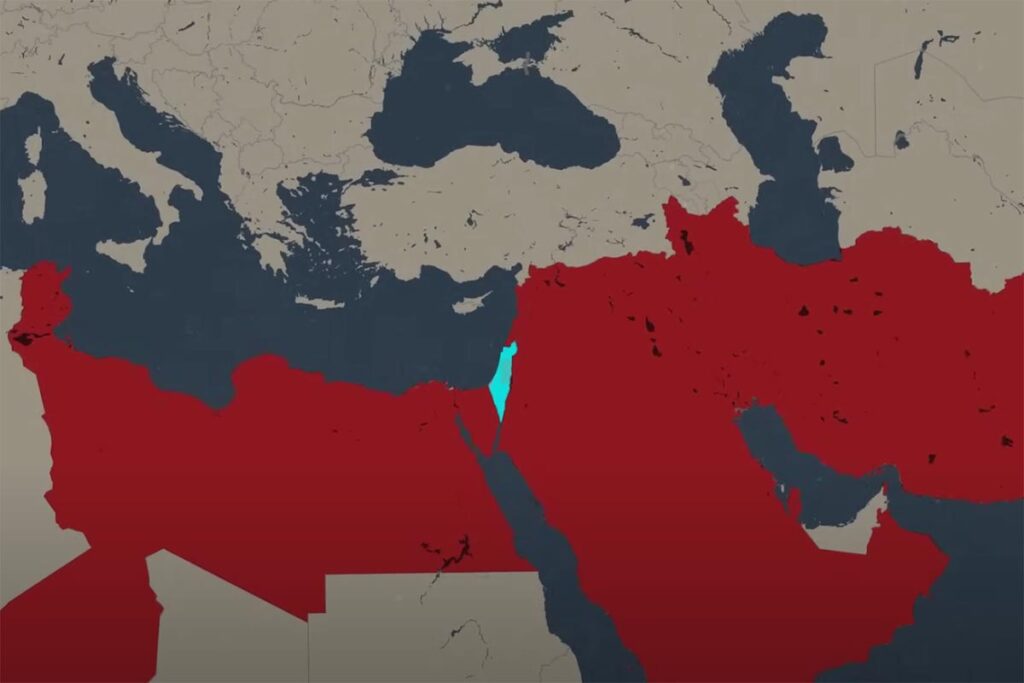
In the wake of Israel’s stunning victory in the Six-Day War, the Arab League met in Sudan and passed a resolution known informally as “the three no’s.” No peace with Israel. No negotiation with Israel. No recognition of Israel. More than once, this hostility broke into all-out war.
But in 1979, Egypt did something that shocked the Arab world. It brokered a peace deal with the Jewish state. Jordan followed in ‘94. Though the three governments collaborate on everything from security to infrastructure, Israel’s relationship with these countries has never been more than chilly. Still, this cold peace was infinitely preferable to the outright hatred from countries like Iran.
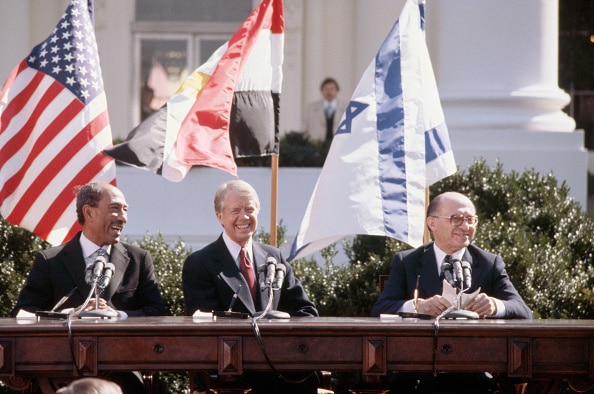
And then something dramatic happened. In September 2020, the world got a glimpse of what a new Middle East could look like. In a move that the former U.N. Secretary General called “momentous”, the UAE and Bahrain signed the Abraham Accords, fully recognizing Israel’s right to exist. Morocco soon followed. And now, Sudan is formalizing relations with Israel, too. That’s right. The same country where the Arab League had agreed on the “Three Nos” is now in the process of establishing a diplomatic relationship with the Jewish State. Momentous indeed!
The goal of these agreements are not about having a chilly or merely cordial relationship, but relations that would bring about warmth and full cooperation. This is no small feat. Popular opinion in Sudan is still pretty anti-Israel and has its leadership using cautious language in changing the status quo. So while this process will take some time in reversing decades of anti-Zionism, this is the first step in finally treating Israel like a normal country. And we’ve already seen change.
In the wake of these agreements, Israelis have flocked to Dubai and Morocco in droves. They’ve welcomed the first Emirati students into Israeli universities. And they’ve inked deals with huge economic and environmental implications for the region.
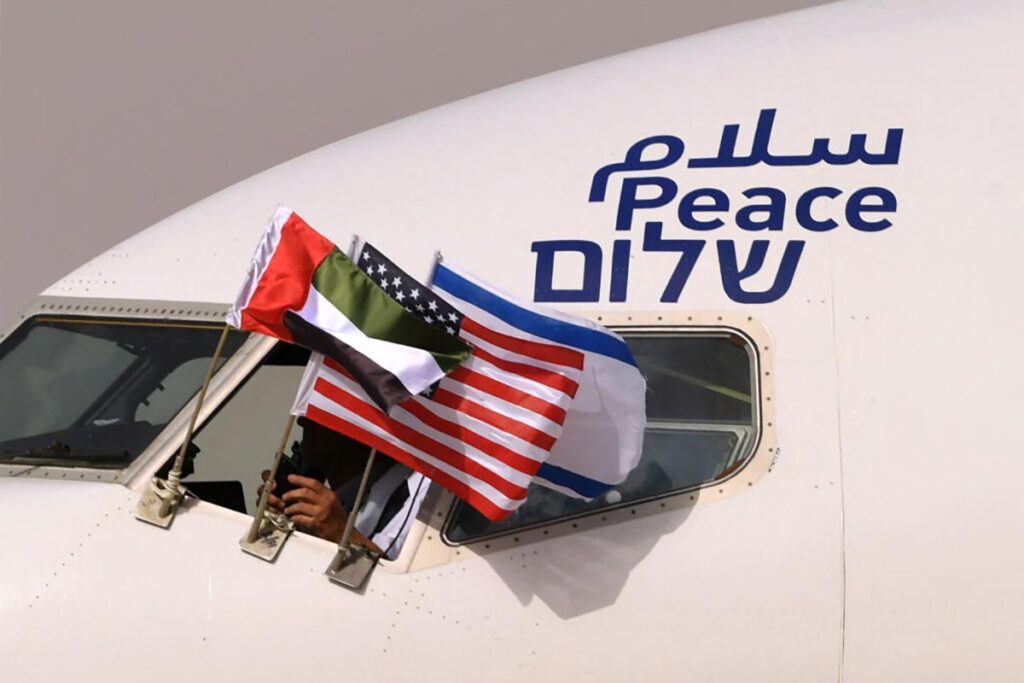
In the first year of the accords, Israel’s trade with the UAE generated over a billion dollars. And it more than doubled in 2022. These amazing figures have real-life implications. In the first year, 150,000 news jobs were created and some estimate that number “could grow to more than 4 million new jobs and more than $1 trillion in new economic activity over a decade.”
Even more exciting, the success of these deals may inspire other Arab countries to reevaluate their business relationship with Israel. In late 2022, Israel announced a plan to more than double the value of its trade with Egypt by 2025. The trade deals of the Accords can have a cascading effect, and it’s exciting to imagine how much more prosperous the region might be in a few years’ time.
Other countries have taken notice. Countries like Saudi Arabia have secretly been talking with Israel for years. The Abraham Accords have increased their likelihood of normalizing ties with Israel. Normalization would make the underground relationship “official.”
But the buzz extends even further afield. Mauritania, which severed relations with Israel in 2009, expressed tacit support for the UAE’s decision to deal with Israel. Even the former Vice President of Indonesia — a country that has historically shunned the Jewish state — has spoken out about the value of establishing relations, a move with huge economic implications for the entire Asia-Pacific region. But like the situation with Sudan, let’s just say that many of their citizens aren’t super excited about this development.
Because here’s the thing. The hesitance to join the Abraham Accords from some of these countries and their populations has to do with the fact that one notable group has not shown up to the normalization party. That would be the Palestinians. In fact, Palestinian leadership has expressed great disappointment in the countries that have normalized ties with Israel, criticizing the Accords as a’ “despicable” “betrayal.”
A betrayal? That’s harsh. And that’s because the script got flipped.
For many Palestinians, normalizing with Israel is seen as accepting the defeat of the Palestinian Arab national movement and their displacement throughout the broader region. A displacement that created a diaspora that has served as a permanent reminder to the societies they live in that Israel’s establishment ended the once popular dream of a Pan-Arab state that included Palestine.
So while that dream has been replaced by others, the importance of the Palestinian struggle for rights and self-determination has inspired Arab and Muslim countries to rally behind the Palestinian cause for nearly a century. Most Arab and Muslim countries still refuse to recognize the existence of Israel.
Historically, the Arab bloc has voted in lockstep against Israel at the U.N. For decades, the common wisdom was this: peace between Israel and the broader Arab and Muslim world would follow peace between Israel and the Palestinians. Let me state it more strongly. The world used to think that if you solve the Israeli-Palestinian conflict, then you can start to solve the Israeli-Arab conflict.
But the facts on the ground have changed. Arab governments seem to be moving on. True, they remain sympathetic to the Palestinian people, but many have started to question the sequencing and whether their relationship with Israel must be conditioned on an Israeli-Palestinian agreement. Instead, perhaps broader Arab-Israeli peace could progress first and then help to resolve the Israeli-Palestinian conflict?
Strong relations with Israel are important to many of these countries because in an increasingly precarious Middle East, an alliance with Israel offers very attractive benefits. The so-called “start-up” nation is a climate-tech pioneer — a lifeline in an arid region riddled with drought.
Plus, establishing diplomatic relations with Israel can help Arab nations in their relationship to Washington D.C. Perhaps most importantly, Gulf States like the UAE and Bahrain — not to mention Saudi Arabia — recognize that Israel is an extremely valuable ally against Iran.
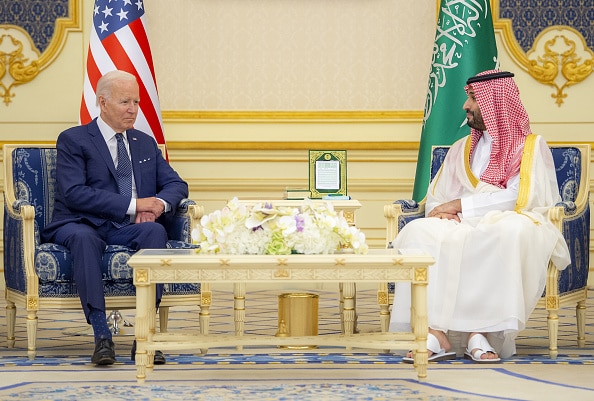
But the primary concern for the average Palestinian isn’t Iran or climate change. It’s improving their quality of life and having the freedom of movement and access to resources that they don’t have because of conflict with Israel.
However, like the signatories to Abraham Accords, some Palestinians see normalization as a path towards achieving these goals. A necessary recognition of the fact that Israel and the Jewish people are here to stay. And without them granting approval to everything that Israel represents — it’s a first step towards bridging the many gaps that exist between the Israeli and Palestinian peoples.
The Abraham Accords provide us a path towards envisioning normalization with Palestinians. One that focuses on our mutual interests with the long term goal of creating a new narrative for Arab-Jewish relations in our neighborhood. And here’s how:
1. People-to-people diplomacy
In the absence of a clear political framework for solving the conflict, Israeli-Palestinian normalization can focus on building trust between peoples. What am I talking about?
Many Israelis and Palestinians speak nostalgically about the pre-Oslo accords, pre-Intifada days, before the checkpoints, and suicide bombs, and walls, when Israelis and Palestinians knew each other beyond the context of conflict.
Two intifadas and many failed negotiations later, Israeli-Palestinian interaction has been largely reduced to checkpoints and violent clashes. The fear of normalization stems from the inability for each side to see the other as normal people.
But imagine if community leaders could be motivated to function as a meaningful bridge between Israelis and Palestinians. The best way to do so is by supporting the type of cultural exchange that the Abraham Accords has done for Israelis and Emiratis.
Take language for example. Some Palestinians speak Hebrew and a growing number of Israelis (inspired by the Abraham Accords) are learning Arabic. Student language exchange is a great opportunity to build the type of interpersonal relationships that are the prerequisite for trust. Trust that can be the basis for changing Palestinian lives for the better.
This is about building a new framework for resolving the Israeli-Palestinian conflict. An approach that depends on Israelis and Palestinians embracing a relationship with each other without feeling like they are giving up their central aspirations.
This means accepting dialogue as the path towards understanding our identities and forging a new narrative for the future. The closer they are to each other, the more opportunities they have to advocate for their national interests. It is much more likely that Israelis and Palestinians will listen to trustworthy friends.
For example, future normalization attempts could create the conditions for Israel to strengthen Palestinian autonomy in certain parts of the West Bank. Or could include Israel investing in Palestinian institutions in Jerusalem.
Palestinians want tangible changes to their conditions, and understandably so. Israelis want safety and security. With the renewal of trust, the sky’s the limit.
The Abraham Accords are proof of this. Israel’s warming relationship to the Arab world has made Israel more confident and less skeptical of its neighbors. And that gives Israelis a renewed sense of trust that peace is possible and more hope that good faith negotiations will be returned in kind.
Israelis are beginning to recognize that diplomacy with the Arab world need not be a zero-sum game, and that former enemies can be transformed into agreeable partners given the right conditions. If the Sudanese and Saudis can open the door to relations with Israelis, then Palestinians, many of whom live alongside Israelis, can too. And vice versa.
Issawi Frej is the former Israeli Minister of Regional Cooperation. He’s also Arab and Muslim and firmly on the political left in Israel. He’s pushed for Israeli-Palestinian normalization since the start. Because, as he put it in April 2022, “The Middle East is like a picture… but the picture is not complete without the Palestinians… There is no way for us to move forward without letting the Palestinians be part of this process.”
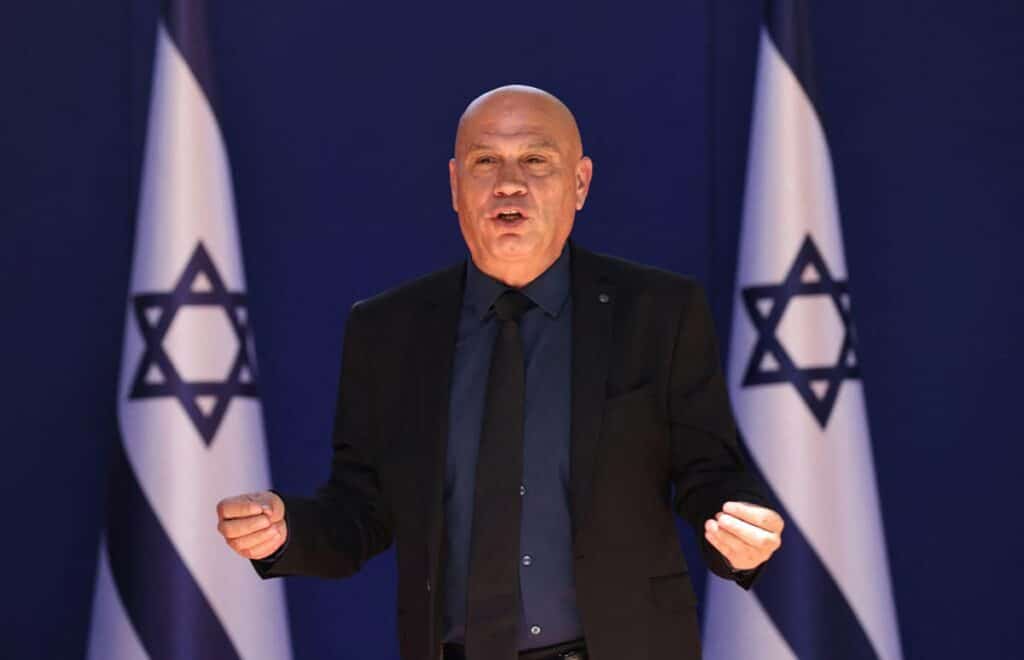
Israel’s former foreign minister agreed, saying: “We are today opening a door before all the peoples of the region, including the Palestinians, and offering them to replace the way of terror and destruction with [a] shared future of progress and success.”
Indeed – just as Issawi Frej stressed in his speeches – only Israeli-Palestinian normalization can end extremism, terror, and destruction. But such normalization must come with concrete benefits. Decades of separation, lack of diplomatic and and public relations has created a pressure cooker of poverty and unemployment that has been filled with incitement and resentment. For the peace and security of both Israelis and Palestinians, normalization must offer Palestinians hope for the future.
Luckily, normalization with other Arab nations is already changing the economic landscape for the better. And if extended to Palestinians, it could revolutionize the quality of life for our entire region.
2. Economic growth
If there is one thing everyone can agree on, it’s the importance of a strong economy. So, if Israelis and Palestinian social networks grow, the UAE’s pledge to invest $10 billion in Israel could open the door to expanded business networks as well. Joint Israeli-Palestinian business ventures in the West Bank and Gaza could mean new infrastructure, new factories, new hospitals, new technology.
But here’s what’s even more exciting: In 2021, Israel and Jordan signed a very, very important agreement. Since 1994, Israel has been supplying Jordan — one of the most water-scarce countries in the world — with 50 million cubic meters of fresh drinkable water per year.
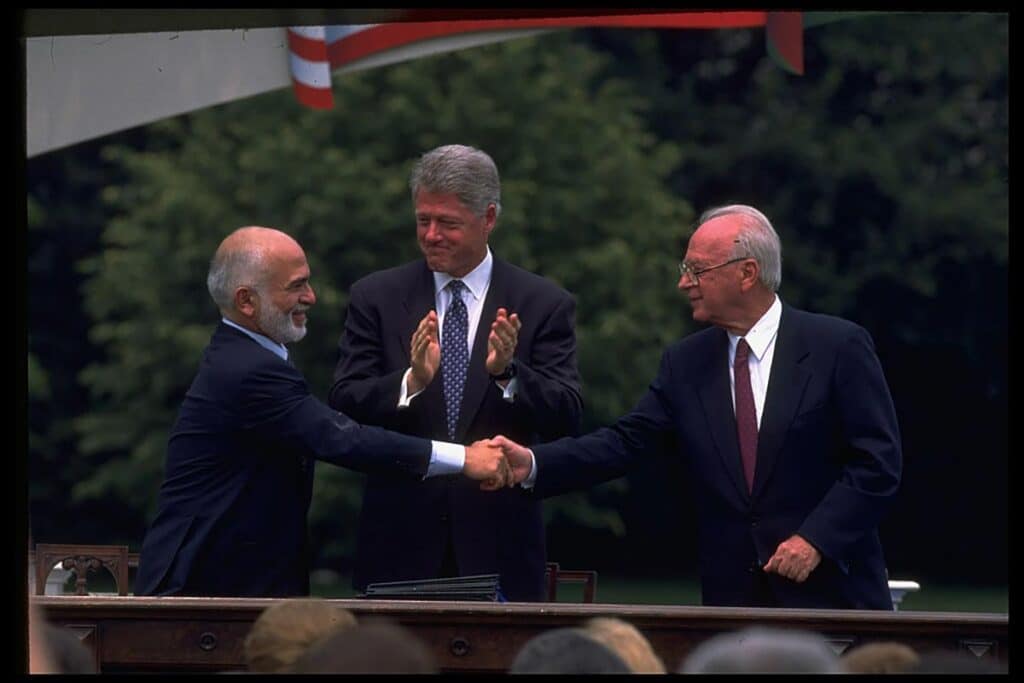
That number doubled in 2021, and a pipeline is being constructed right now that could double that number again. In return, Jordan agreed in 2021 to build a solar power facility, in order to sell clean energy to Israel. This incredible deal, which benefits Jordan, Israel, and the UAE, was brokered with the help of the UAE.
Wait, how could this benefit the Palestinians, you might be asking? And again, the answer is: jobs. New facilities in Jordan. New water pipelines. New plants. All of this is good news because it creates jobs. An interconnected Israeli-Palestinian market can open the Palestinian economy and encourage Israel’s partners to invest in Palestinian infrastructure or develop start-ups or build more factories — all of which create jobs.
Because at the end of the day, people want dignified lives. Palestinians deserve good, dignified lives just like anybody else. And a good relationship with Israel and its friends can bring a heck of a lot of opportunities. Economic empowerment and cultural exchange alone cannot resolve nearly a century of war and trauma, but it can go a long way towards healing these wounds and laying the groundwork for peace.
